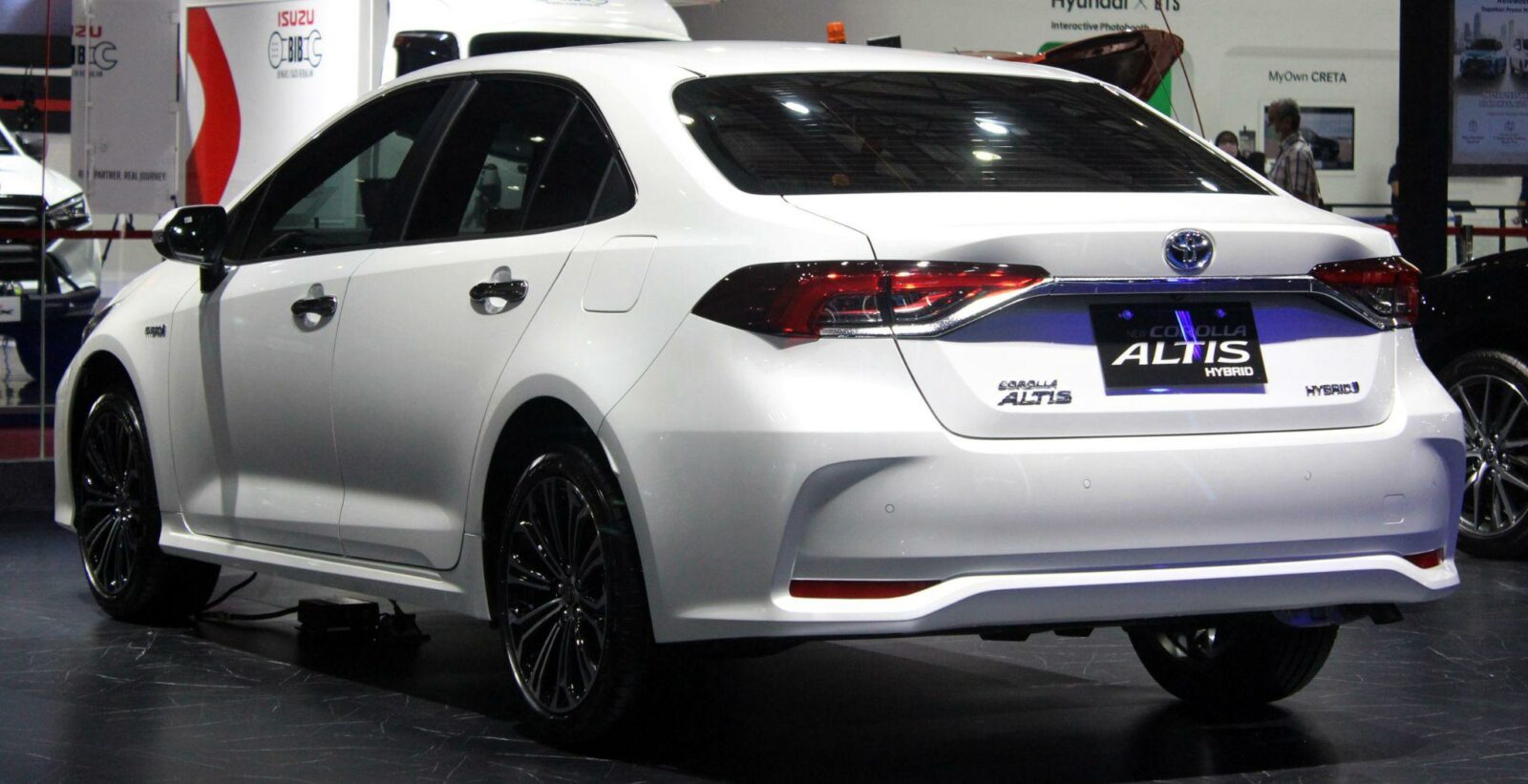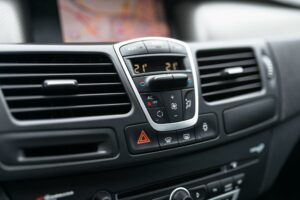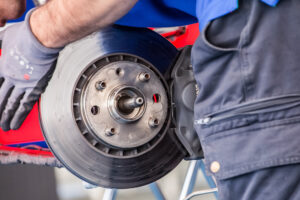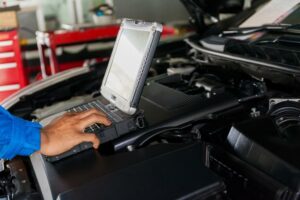Mytho88, CC BY-SA 3.0 <https://creativecommons.org/licenses/by-sa/3.0>, via Wikimedia Commons
Hybrid vehicles are very popular these days. They offer a fuel-efficient alternative to conventional cars, with the bonus of lower emissions and better performance. But there are still plenty of misconceptions about hybrids out there, so let’s clear things up.
Outline:
- What is a Hybrid Vehicle Anyway?
- Common Misconceptions
- Misconception 1: Hybrids cost more than conventional cars.
- Misconception 2: Hybrids are less reliable than conventional cars.
- Misconception 3: Hybrid cars are expensive to repair.
- Misconception 4: Hybrids waste energy because they run on both fuel and battery.
- Misconception 5: Hybrids are only good for short trips.
- Auto Repair in Ventura, CA
What is a Hybrid Vehicle Anyway?
A hybrid vehicle uses two or more different sources of power. The most common types of hybrid vehicles use a combination of both an internal combustion engine and an electric motor. The electric motor is used to power the vehicle at low speeds, while the combustion engine takes over once the vehicle reaches higher speeds. Some hybrids also use alternative energy sources such as hydrogen fuel cells or compressed natural gas.
The main advantage of a hybrid vehicle is its ability to achieve high fuel economy without sacrificing performance or comfort in any way. Hybrid vehicles typically get better gas mileage than their traditional counterparts, which means they also cost less to operate. Many hybrid models also come with additional features such as regenerative braking and lower emissions.
The term “hybrid” has been used to describe cars for decades, but the first modern hybrid cars were introduced in Japan in 1997 by Toyota. Other automakers soon followed suit with their own versions of the technology, which they called “hybrid electric” or simply “HEV.”
In 2009, the first hybrid plug-in car was released by General Motors (GM). Called the Chevrolet Volt, it could run on battery power alone for up to 50 miles per charge before switching over to gas-powered generators to recharge its batteries.
However, most hybrids aren’t plug-ins — you can’t charge them at home like an electric car because they don’t have batteries big enough to store enough energy for long trips away from charging stations. Instead, they rely on gasoline or diesel fuel to extend their range past what can be achieved with electricity alone.
Most hybrids don’t actually use regenerative braking (where the brakes turn into generators) as early versions did; instead, they use friction brakes like most other vehicles do today. Today there are dozens of hybrid car models available from almost every major automaker including Ford, General Motors, Honda, Toyota, and Nissan to name just a few.
Common Misconceptions About Hybrid Batteries and Vehicles
Although hybrid vehicles have been on the market for more than two decades, there are still many misconceptions about them. This may lead people to make wrong decisions when buying a car. Here are some common misconceptions about hybrid batteries and vehicles:
Misconception 1: Hybrids cost more than conventional cars.
The first misconception is that hybrid vehicles cost more than conventional cars. While it is true that hybrid vehicles do cost more than some conventional cars, they are also more efficient and will save you on fuel costs over the long term. Moreover, the cost of hybrid technology has come down considerably since the launching of the first mass-produced hybrid car in Japan in 1997, with many models available at or near the price level of comparable non-hybrid vehicles.
Misconception 2: Hybrids are less reliable than conventional cars.
The reliability of hybrid vehicles depends on the make and model of the vehicle, just like any other car. You should do your research to determine which type of hybrid is best suited for your needs and how long you plan to keep your car before purchasing one.
Misconception 3: Hybrid cars are expensive to repair.
While this is partially true, it is not always the case. In fact, hybrid cars are less likely to fail compared to their conventional counterparts because they have fewer moving parts. Aside from fewer car repairs, they also require less maintenance work than conventional vehicles.
Misconception 4: Hybrids waste energy because they run on both fuel and battery.
This is one of the biggest misconceptions about hybrid cars. While it is true that they run on both fuel and battery power, their engines are designed to use less fuel than conventional vehicles. In fact, a hybrid car can reduce its fuel consumption by 30% depending on driving conditions.
A hybrid vehicle has an internal combustion engine (ICE) that also has an electric motor connected to it. The ICE can be powered either by gasoline or diesel fuel, but they can also be powered by electricity generated by a hybrid battery pack. Hybrids usually have two modes: full-hybrid mode (when both the ICE and electric motor are used), and electric-only mode (when only the electric motor is used).
In full-hybrid mode, a car would typically use less fuel than in regular mode because it uses both the ICE and the electric motor to propel itself forward. At the end of the day, hybrids may not be as efficient as a purely 100% e-vehicle, but they are still more efficient than traditional gas-powered cars.
Misconception 5: Hybrids are only good for short trips.
This misconception is partially true, but it is also false in its entirety. Hybrids are better suited to shorter trips than longer ones because they use less fuel in stop-and-go traffic than they do on highways where speeds are higher (so there is less time spent accelerating). However, hybrids are capable of going long distances. In fact, many people use hybrids as daily drivers because they can get just as good gas mileage as a traditional gas-powered car while still having the option to use electricity when needed.
For example, the 2021 Toyota Prius can travel roughly 600 miles on a single tank of gas, which is longer than most people drive in a day. So if you are planning a road trip in your hybrid, don’t worry about running out of gas!
Auto Repair in Ventura, CA
The bottom line? Hybrid vehicles are great. They can help you save money, reduce carbon emissions, and use less gas overall. If you decide to go with a hybrid over a conventional vehicle, you really can’t lose. So if you are in the market for a new car, don’t shy away from hybrids just because of all the misconceptions out there—these vehicles are definitely worth considering.
And, if you don’t know how or where to start, our expert auto repair mechanics here at Dependable Car Care can help you. We have the right experience and expertise when it comes to hybrid batteries and vehicles, and we can help you find the right one for your needs. Whether you need a replacement or want to upgrade from an existing model, we are here for you.
Call us today to get your free car repair quote or to schedule an appointment with one of our ASE Certified mechanics. We are very excited to serve you.





